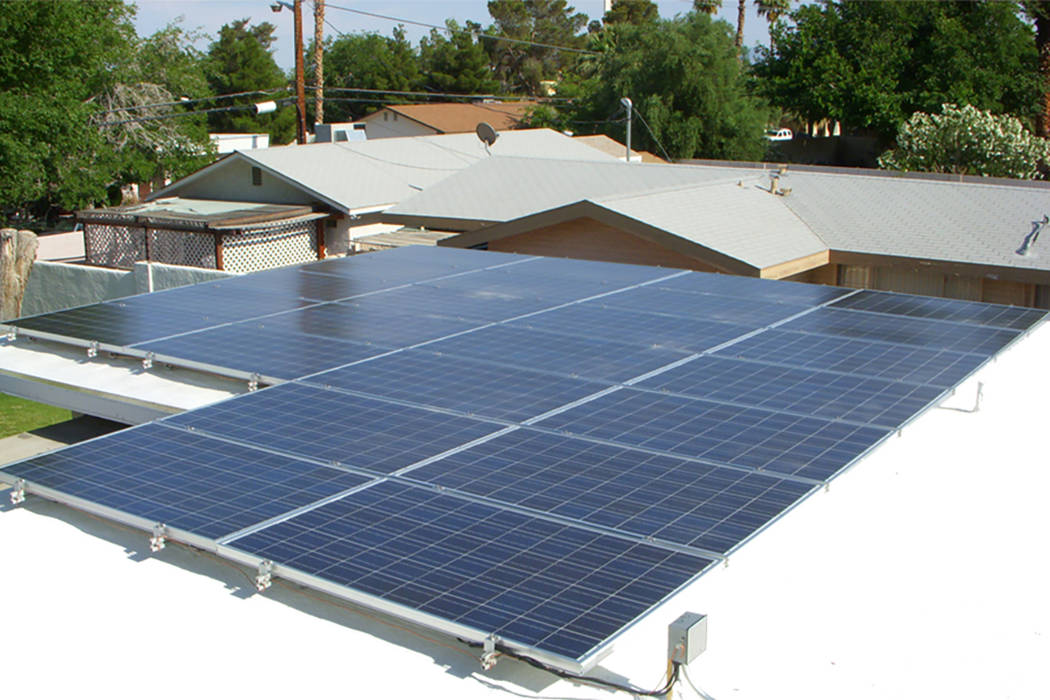Solar group takes issue with NV Energy cost projections

CARSON CITY — A rooftop solar group on Thursday questioned figures from NV Energy that suggest a bill seeking to restart net metering in Nevada would cost ratepayers as much as $48 million a year.
The NV Energy analysis released Wednesday says that when the existing 25,000 rooftop solar customers are included, the costs total $63 million a year for a total of $1.3 billion over the 20-year life of the bill.
Even if the NV Energy estimates are accepted as accurate, which solar advocates do not, the cost to the utility’s 1.3 million customers would be about $4 a month per customer if rooftop solar production reached 10 percent of peak load in 10 years, according to data provided by the Solar Energy Industries Association.
Solar companies, green energy supporters and others are pushing for a bill this session to restore the industry in Nevada, which was decimated after new, lower credits for excess electricity generated from the systems were adopted by the Nevada Public Utilities Commission.
Assembly Bill 405 saw strong support and some opposition Wednesday in a hearing in the Senate Commerce Committee. The bill has passed the Assembly on a 38-2 vote. A committee vote is expected in the next few days.
NV Energy is neutral on the bill.
NV Energy says the costs come from having to pay more in credits that the excess electricity is worth at market value, and because monthly fixed charges for rooftop solar customers would not cover the costs of providing services.
The bill would provide a credit of 95 percent of the retail rate of solar, currently 11.3 cents in Southern Nevada, for the first round of new customers. It would also eliminate the higher monthly fixed fee established by the PUC.
But the solar group says NV Energy is paying more than market value now for many of its large solar projects. While the new Boulder Solar 2 facility is costing the utility about 4 cents per kilowatt hour, other generation facilities built several years ago are costing as much as 13 cents to 19 cents per kilowatt hour.
Solar advocates also say those costs do not include the cost of transmission. The large-scale solar facilities require power lines and substations to deliver the electricity.
The analysis also does not show any benefit to the utility for rooftop solar generation, from helping reduce peak demand to environmental advantages such as no carbon dioxide production.
If Question 3 passes in 2018, which would begin the process of opening up Nevada’s energy markets to competition, NV Energy, which operates as Nevada Power in Southern Nevada, would no longer be the energy provider to Nevadans. Instead, businesses and residents will seek out their own suppliers on the open market.
NV Energy would continue to operate the transmission system to deliver electricity to customers.
Contact Sean Whaley at swhaley@reviewjournal.com or 775-461-3820. Follow @seanw801 on Twitter.